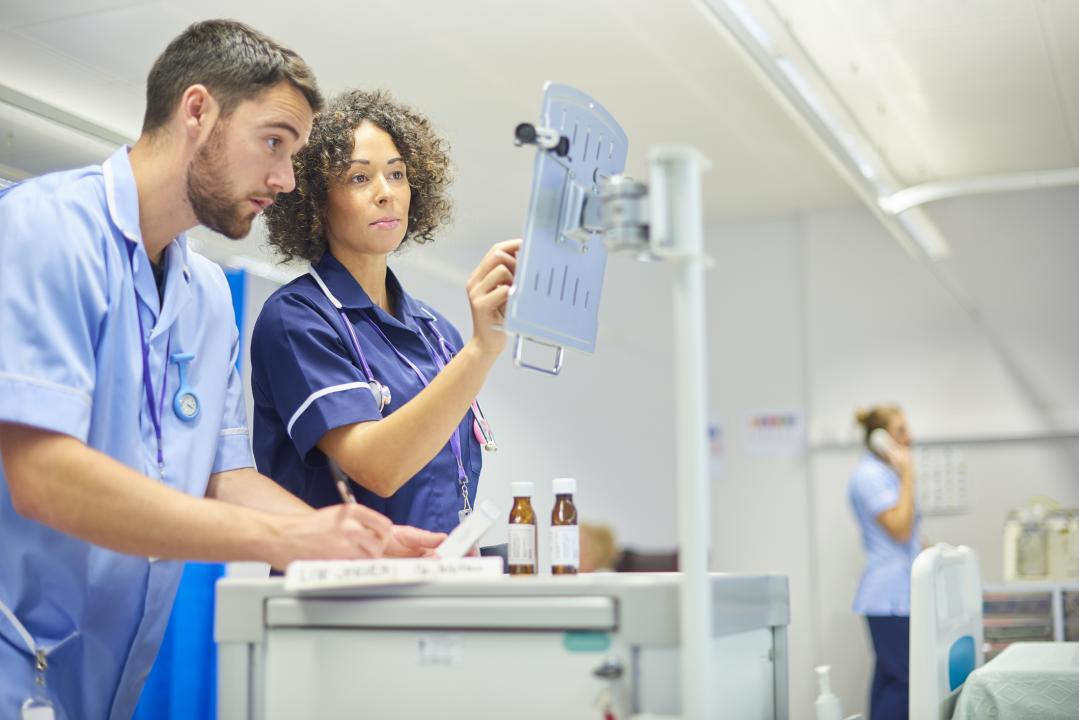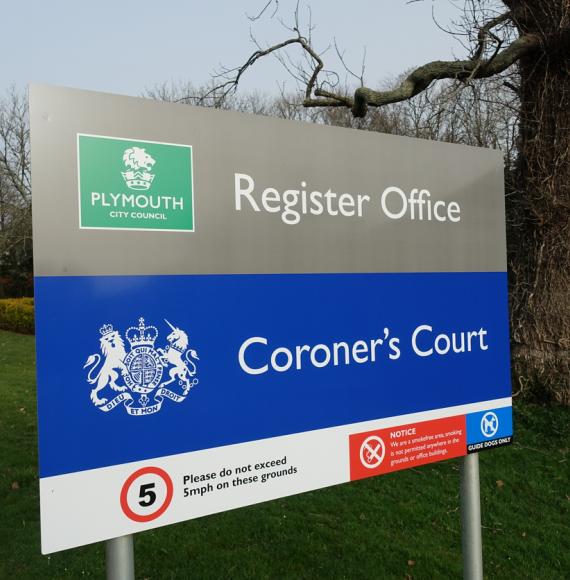The Covid-19 pandemic has stretched UK health and social care like never before. To overcome this great collective challenge, the sector has turned to digital technologies to support the incredible efforts already being made by key workers.
Even before the pandemic began, there were those within health and social care making digital progress. The Cumbria and Lancashire Telestroke Network transformed patient care by providing a 24/7 stroke diagnosis service.
The service uses a highspeed fibre optic network to connect a specialist team of consultants with patients suspected of suffering a stroke, enabling rapid assessment to take place. This can reduce long-lasting side effects and save lives.
The last year has brought health and wellbeing to the forefront of all our minds – we spend less time commuting and have more time to focus on our physical and mental wellbeing. This trend has sparked huge growth in digital fitness and mindfulness apps in the private sector.
Virtual spin classes, online meditation, Joe Wicks workouts – digital health is now an everyday focus for people. The knock-on effect of this is a fitter, healthier and happier nation – which means less pressure on NHS services. And digital fitness is something the NHS has been quick to support.
Take the rapid adoption of the NHS-backed fitness app, ‘Couch to 5k’. The app is a running plan for beginners to help those who don’t exercise regularly take positive steps for their health and fitness. Between March and June 2020, the app was downloaded nearly one million times – a 92% increase compared to 2019.
This digital innovation is here to stay – from virtual consultations to enhanced digital collection of information. And it’s not only transforming the provision of health and social care for the nation. It’s boosting the UK economy, too.
We recently commissioned the Centre for Economics and Business Research (Cebr) to look at how the UK economy could benefit from continued investment in digital transformation; sustained progress of the type we’ve seen over last year.
We found that, across both the private and public sectors, Covid-driven digital change could increase GDP by £232bn, or 6.9%, by 2040.
And the health and social care sector has a significant role to play. Our research found that simply by continuing to invest in digital infrastructure projects in the sector, we could expect a £33bn boost to UK GDP over the same timeframe – an uplift of approximately 1%.

But to make sure we capture the opportunities ahead of us, we need to understand the innovations that are driving current transformations and how they will shape the long-term future of health and social care.
Virtual care in the real world
Our research found that the delivery of digital services is a key area of transformation. And this has certainly been seen in the rapid rise of virtual consultations across UK healthcare.
With person-to-person contact being restricted to reduce the spread of the virus, these services have boomed as an effective way for patients to receive clinical advice and diagnosis.
Some health practitioners have created entirely digital services that maintain levels of care and ensure patients with fewer digital skills aren’t left behind. Richmond Wellbeing Service, part of the East London NHS Foundation Trust, has repurposed its smaller clinical spaces as digital pods. Now, people can simply walk in, sit down, and be seen over a face-to-face video call by a clinician – with no technical know-how required and at no risk of transmitting Covid-19.
The face-to-face video pods have created better outcomes for patients than a phone call. And it is likely to continue. Dr Ben Wright, Lead Clinician at Richmond Wellbeing Service and Chief Clinical Digital Officer with East London NHS Foundation Trust believes that in the future “70% of mental health consultations will remain virtual and 20% will be delivered through digital pods.”
Meanwhile, other healthcare providers are using technologies to assist with training, increasing staff understanding of the challenges faced by their patients. Frontline workers in eye health, for instance, can use virtual reality headsets to walk in their patient’s shoes – experiencing the world as they do, first hand. From this, hospitals and health services can run situational training sessions that have the patient experience at their heart.
A lightning-fast network for the NHS
Covid-driven digital transformation hasn’t just been seen in innovative care solutions. It’s changed the very foundation that allows health and care sector technologies to be effective: its network.
The pandemic saw NHS Digital complete the biggest ever public-sector data-network migration, saving the NHS around £75m a year in the process. Today, the Health and Social Care Network (HSCN) connects 12,000 sites belonging to 950 NHS, social care, private sector and local authority organisations.
HSCN provides faster connectivity that is crucial to delivering services in the digital age. And that means frontline workers can provide quicker, smarter care that improves patient outcomes.
Rob Harder, CTO for University Hospitals Plymouth NHS Trust, told us: “It’s given us 10 times more bandwidth at 20% less cost. More reliable connectivity for our clinical systems gives us capacity to share more information. The more information our clinicians can share when they are discussing complex patients gives them better ability to provide better patient care.”
Accelerating into the new everyday
These transformations are creating a revolutionised health and social care sector. But we haven’t yet realised the full potential of the progress we’ve seen – the £33bn opportunity that lies in wait in 2040.
To grasp this, we need to continue investing in digital solutions that will sustain acceleration into a new and better everyday. One that benefits the NHS, frontline caregivers, and patients across the UK.
Virgin Media Business is committed to claiming this future for everyone. We paved the way for delivery of HSCN with our Public Services Network (PSN). And we were one of the first organisations in the country to be awarded the PSN Compliance Certification CAS(T) 2-2-4. We’ve since achieved two-stage compliance for HSCN.
We partner with health and social care providers to put the right tools in their people’s hands, empowering them to treat and care for patients in the best way possible. And we make sure they have the right infrastructure to make that happen, quickly and securely.
Visit VMB to see how we can support your digital strategy and revolutionise the everyday.



















